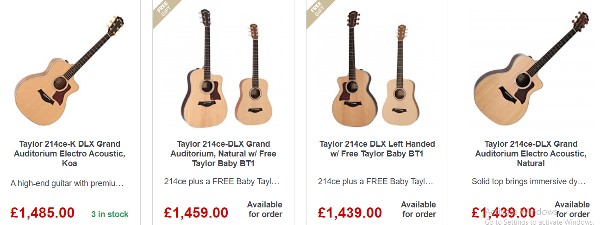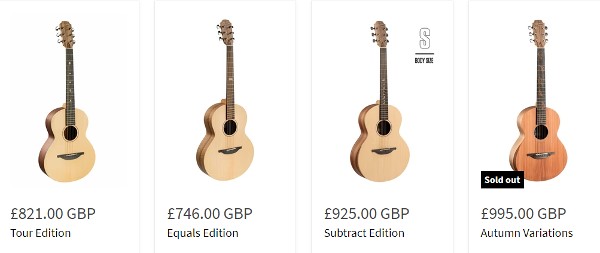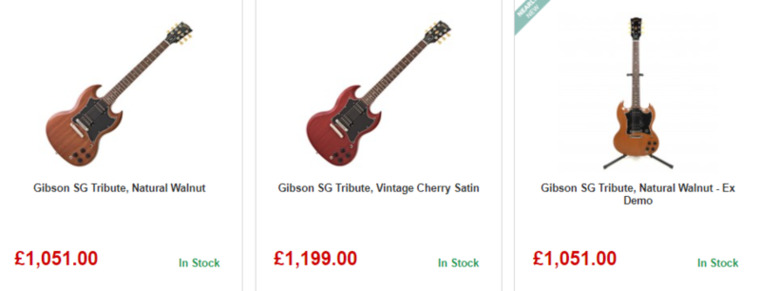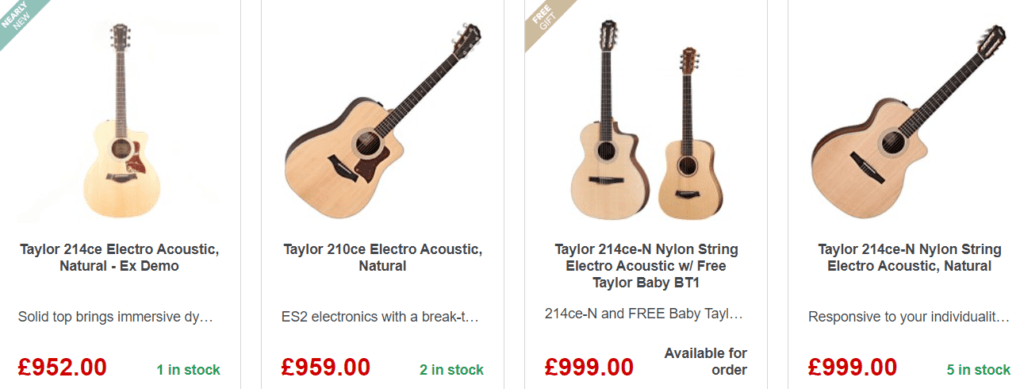Choosing a good guitar, whether you’re a beginner or a seasoned player, involves understanding the key qualities that make a guitar stand out. Here’s a breakdown of the essential features that contribute to a quality guitar.

1. Tonewood Quality
The type of wood used in a guitar significantly influences its sound. High-quality tonewoods, such as mahogany, rosewood, and spruce, are often used in top-tier guitars. These woods not only affect the tone but also the guitar’s durability and resonance. For instance, mahogany is known for its warm tones, while spruce offers a bright, clear sound. The quality and aging of the wood also play a crucial role in the guitar’s tonal richness.
2. Build and Craftsmanship
A well-built guitar shows careful attention to detail. The craftsmanship should be evident in the guitar’s finish, the precision of the fretwork, the smoothness of the neck, and the overall balance of the instrument. High-quality guitars often feature hand-carved necks and bodies, ensuring a perfect fit and finish. The craftsmanship extends to the joints, ensuring they are secure and cleanly made, which affects both the guitar’s playability and durability.
3. Neck and Fingerboard
The neck should feel comfortable in your hand, and the fingerboard should be smooth and easy to play. The guitar’s neck profile can vary, so it’s essential to find one that fits your hand size and playing style. A good guitar will have a neck that remains straight and doesn’t warp over time, with frets that are evenly spaced and well-polished.
4. Hardware Quality
The quality of the guitar’s hardware, including the tuning pegs, bridge, and pickups (for electric guitars), is crucial. Reliable tuning pegs keep the guitar in tune, while a sturdy bridge ensures the strings stay in place and the intonation is accurate. On electric guitars, high-quality pickups provide a clear and accurate sound representation. Cheap hardware can lead to tuning instability, poor sound quality, and a shorter lifespan of the guitar.
5. Sound and Playability
Arguably, the most important aspect of a good guitar is its sound. A quality guitar will have a rich, full tone, whether it’s being played acoustically or amplified. It should respond well to your playing style, offering clarity in both high and low registers. Playability is also essential; a good guitar should feel comfortable to play, with a neck that suits your hand and an action that’s neither too high nor too low.
6. Durability and Longevity
A good guitar is built to last. It should withstand changes in temperature and humidity without warping or cracking. High-quality guitars are often constructed with reinforced necks and bodies, and are finished with durable, protective coatings. This ensures the guitar remains in good condition and retains its sound quality over time.
7. Resonance and Sustain
Resonance refers to how well the guitar’s body vibrates with the strings, which affects the richness of the sound. Sustain is how long a note rings out after being played. A good guitar will have a body that resonates well, producing a full sound, and will allow notes to sustain longer, giving you more expressive capabilities.
8. Aesthetic Appeal
While sound and playability are paramount, the guitar’s aesthetic is also a consideration. A guitar that looks as good as it sounds can inspire you to play more often. Whether it’s a classic sunburst finish on an electric guitar or the natural grain of an acoustic, the visual appeal adds to the overall experience of owning and playing the instrument.
9. Value for Money
A good guitar doesn’t necessarily have to be the most expensive one. The best guitars offer great value for the price, balancing high-quality materials, excellent craftsmanship, and a sound that exceeds expectations for its cost. Whether you’re spending a few hundred dollars or several thousand, the guitar should feel worth every penny.
Conclusion
In summary, the qualities of a good guitar encompass a blend of excellent tonewood, superior craftsmanship, high-quality hardware, and outstanding sound and playability. Whether you’re buying your first guitar or adding to your collection, paying attention to these details will ensure you select an instrument that not only meets your needs but also enhances your playing experience for years to come.




